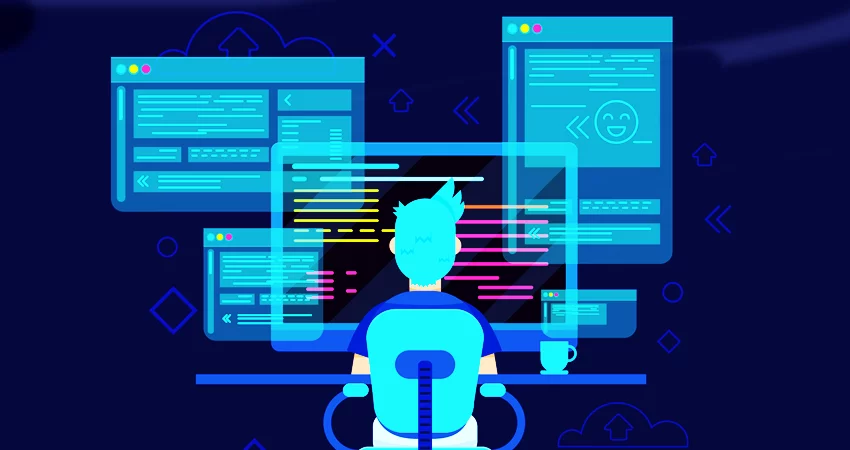Endpoints are the network-enabled devices like PCs, smartphones, tablets, workstations you use when you work, or a server for storing data. Hence, endpoint security is an important aspect that should be addressed.
As we know, they offer multiple ways to connect them, and not just through a network, to external sources as well.
Physically via ports and readers like USB, memory cards, floppy disks, hard drives, CDs can be accessed.
With so many ways available, it also becomes fairly easy to copy and steal your data and information.
The point is, there’s a massive risk over crucial data stored-up in these endpoints without anyone noticing.
And now, imagine running a company with no endpoint Security or protection from even much more external threats!
What Endpoint Protection or Endpoint Security prevents from happening
Endpoint threats include
- data loss,
- banking details or card information leakage,
- virus, spyware or malware infection through external devices,
- unauthorized and unprotected data sharing from and to End-points.
even Misconfigured Cloud Servers, r-sync, NAS and backup can become a headache.
What is Endpoint Security-
With mobility and bring-your-own-device (BYOD) trends being the norm in today’s workplace and productivity, potentially, everyone is an insider threat.
The figure paints a grim picture for companies. Research by IBM, Cyber Security Intelligence Index, revealed that in 2016, 60% of all attacks were carried out by insiders.
The EPP Solution works on a client-server model. Endpoint Security or Endpoint Protection ensures that such devices follow a specific level of compliance with certain standards.
Moreover, it is a software that helps in identifying and managing multiple device access over a network.
Furthermore, it allows the network admin to restrict specific website access to particular users to comply with the organisation’s policies.
The essential elements in the Endpoint Protection system include VPN client, an OS, an Antivirus.
There is yet another model; Software-as-a-service.
In this the security server or the host server are remotely maintained by the merchant in the payment card industry, the contribution from both delivery models is that the program of server verifies the user login credentials and can the device to check if it complies with the company security standards to permit network access.
You may furthermore choose from the EPP for larger network or your personal/home network ( a stand-alone PC for example).
So how is Endpoint Protection different from Antivirus Software you ask?
It is not an individual device that is secured, but it’s the network as a whole that is protected.
So even if your system has an endpoint security protection layer, you need to secure endpoint devices with endpoint security antivirus or anti-malware tools. It is like protecting your home on both levels; from inside and outside.
Read More- Top 8 Zero Trust Vendors
The Endpoint Security Tools and Software-
So, many of the given solutions also deal with the SMB focused web gateways and firewalls with mobile device management.
Endpoint Central:
Endpoint Central is an all-in-one endpoint solution that organizations can take advantage of. It addresses all the challenges related to endpoint security with its vast range of features-
Vulnerability management & compliance: Endpoint security assists in conducting frequent endpoint scans to identify vulnerabilities, analyze probable risks, and continuously implement patches. Along with that, solidifying web servers against XSS and navigating security misconfiguration is possible with such security measures. Zero-day vulnerabilities can also be efficiently tracked with endpoint protection.
Browser security: Endpoint safety ensures monitoring browsers and connected add-ons particular organizations use. It also follows the procedures of URL filtering and permission-based access control with which only authorized websites can access and manage system data. Moreover, it allows compliance with the standard security guidelines of CIS and STIG.
Device control: Endpoint security manages, restricts, and assesses connected USB and peripheral devices to limit unauthorized data disclosure and theft. Alongside that, monitoring the information-sharing rates, facilitating file sharing, and controlling file access as per the designation of the employees can also be ensured.
Application control: Ensure restricting usage of corrupted applications and endorse safe applications with the methods of blacklisting and whitelisting with endpoint protection. Formulate trusted application lists that comply with standard laws and regulations, as well as utilize flexible methods to manage and adjust application lists with endpoint safety.
BitLocker encryption: Endpoint protection enables the use of BitLocker-encrypted devices to safeguard data transfer processes. It also allows the utilization of a centralized console to assess endpoint encryption status proactively.
Next-Gen Antivirus: With the usage of proprietary machine-learning techniques, such security measures can automatically detect unusual file activities at endpoints. While encountering such incidents, endpoint protection not only analyzes them but also resolves them in no time with one-click data recovery methods.
Endpoint Data-Loss Prevention: Easily leverage pre-established and customized templates to scan continuously and categorize organizational data as per their urgency with endpoint protection. It also enables analyzing and tracking data activity with a centrally operated system. Additionally, it allows for controlling data transfer activities over different channels such as USB devices, email, cloud storage, and others.
The following are someother widespread and diverse Endpoint Security Solutions from Magic Quadrant (alphabetically):
- Bitdefender
- Carbon Black
- FireEye
- McAfee
- Microsoft
- Palo Alto Networks
- Symantec
- TrendMicro
Furthermore, an EPP solution must include SOAR (security operations, analytics and reporting) tools.
Also, throw in some customization and integration ease with third-party tools too. The endpoint security market is maturing with every year.
Consequently, people are recognizing the difference between and Antivirus Software and Endpoint Security.
“Server security has diverged from Endpoint Protection, with qualified tools to address the modern hybrid data center (cloud and on-premises)”.
You May Also Like to Read:
What is Security Orchestration, Automation and Response (SOAR)?

